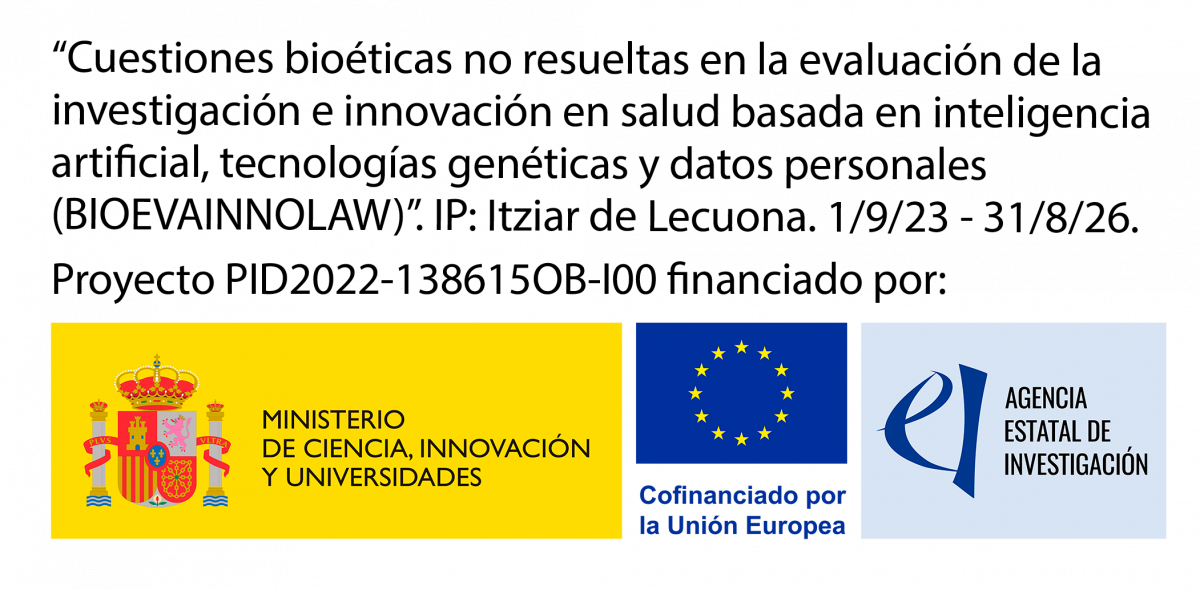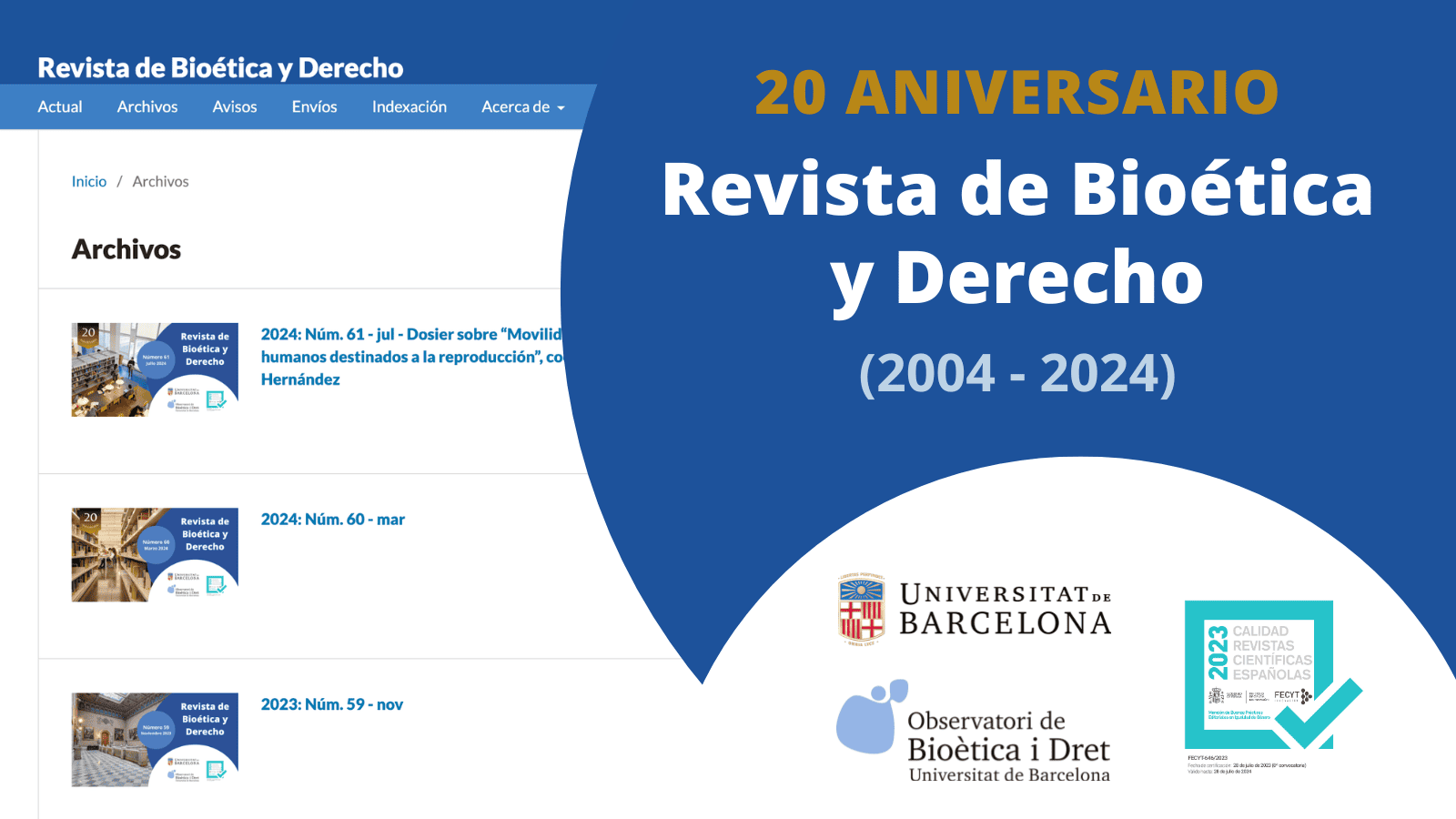The Bioethics and Law Obs.
Master in Bioethics and Law
UNESCO Chair in Bioethics
Contact
- Bioethics and Law Observatory
- UNESCO Chair in Bioethics
- University of Barcelona
- Faculty of Law
- Ave. Diagonal, 684
- 08034 Barcelona
- (+34) 93 403 45 46
- obd.ub@ub.edu
- Master in Bioethics and Law
- (+34) 93 403 45 46
- master.bd@ub.edu
Call for papers for a special dossier on “Research ethics committees in academia and other public research organizations”
Revista de Bioética y Derecho is a scientific journal on bioethics and law published by the University of Barcelona. It has been awarded a quality seal by the Spanish Foundation for Science and Technology (FECYT) and recognized for its good practices in gender equality.
The journal is now calling for original contributions to its special dossier on “research ethics committees in academia and other public research organizations”.
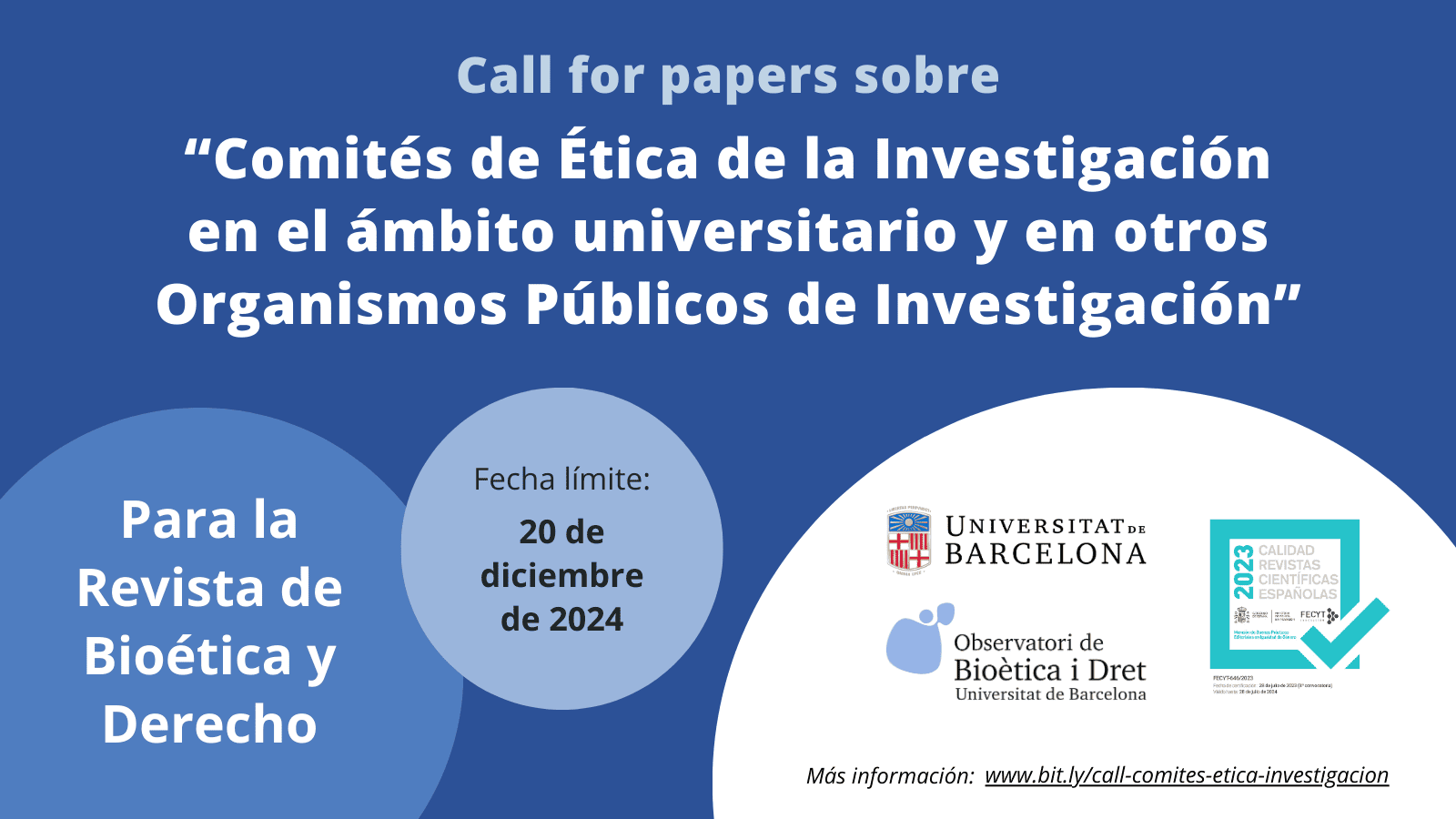
Theme:
Scientific validity, social relevance and protection of research participants are reviewed by research ethics committees at universities and other public research organizations. However, this area is not governed by clearly defined and well-organized regulations, unlike clinical trials with medicines and medical devices, which must be evaluated by specifically accredited ethics committees. Since the 1990s, ethics committees have been created within universities and public research centers. Their mission is to review and monitor research projects, but they do so primarily in a reactive manner, in order to comply with funding call requirements. Such review and monitoring is not an easy task. It requires dedication but also expertise, especially when dealing with the multiple challenges presented by the development of artificial intelligence (AI), the use of big data, neurotechnologies and genetic technologies.
In this special issue, authors are invited to discuss classical topics such as the membership, operation and independence of research ethics committees, but also good practices, in academic and public research institutions. These areas remain unexplored and warrant further interdisciplinary analyses, particularly in light of emerging research trends; in addition, some project types lack clear regulatory guidelines from the bodies that regulate and control research with human subjects and non-human animals.
The special dossier will be published within the framework of research project BIOEVAINNOLAW (Spanish Ministry of Science, Innovation and Universities), aiming to respond to “unresolved bioethical challenges in the review of health research and innovation projects based on AI, genetic technologies and personal data”. We will welcome articles proposing novel and timely analyses to help identify and provide solutions to the challenges of our time. We encourage authors to analyze the social, political and economic context in which research is conducted, as research efforts respond to data-driven political moves and are key to international competitiveness. For these reasons, research is not tension-free, but is affected by conflicts of interest, commodification of personal data and platform capitalism, which impact people’s privacy and freedom, among other valuable assets for society. We now live in a time of unprecedented ethical and legal hyper-regulation, yet longstanding problems in ethical review persist, compounded by the new challenges linked to scientific and technological advances.
Research ethics committees were established originally to review biomedical research projects, but ethical issues also arise in fields such as the social sciences, humanities, and engineering. So far, ethics committee review has not been mandated in these fields, even though they, too, entail risks to participants that need to be identified and evaluated. For example, the intensive use of personal data, the collection of biological samples, and the profiling of individuals to develop behavioral patterns have become standard research practices at universities and other public research organizations.
The topics covered by this special issue will include, but not be limited to, the following:
- Challenges of research ethics committees in academia and other public research organizations: membership, roles and procedures; particular emphasis on continued monitoring of research projects.
- Training in bioethics and research ethics for ethics committee members: experience sharing.
- Review of research projects involving personal data and/or biological samples: profiling of research subjects.
- Ethical review of research projects involving qualitative instruments: semi-structured interviews, in-depth interviews, participant and non-participant observation.
- Use and development of AI, big data and other emerging technologies, including neurotechnology and genetic technology; research with organoids. Guidelines for review.
- Review of innovation projects. Who takes responsibility?
- Regulation and accreditation of ethics committees at universities and other public research institutions.
- Regulation of research ethics and its implementation in the review of research projects in academia.
- Gender perspective: underrepresentation of women in research, biases, etc.
- Data management in research; review by research ethics committees.
- Ethics of research and scientific integrity versus scientific fraud and other questionable practices. Roles of research ethics committees and scientific integrity committees.
- ChatGPT in research and the response by research ethics committees. Impact and management of generative AI applications.
- Conflicts of interest; identification by research ethics committees. Commodification trends in research (data, samples, etc.).
- New forms of exploitation in research: digital workers.
- Participation through networks to share insights, problems and good practices: utility and future prospects.
-
Research ethics committees and animal welfare committees.
Submission guidelines:
We will welcome original manuscripts in Spanish, Catalan, French, English, Portuguese or Italian. The main text should be no longer than 6,000 words (not including abstracts, keywords, notes, references and funding statements). Submit files in MS Word format only, using Cambria or Arial font, letter size 12, spacing 1.5. Please adhere to the journal’s guidelines for authors and follow this link to submit your manuscript. Only papers accepted for publication following our peer-review process will be included in the special dossier.
The use of large language models (LLMs) such as ChatGPT or Gemini, among others, does not justify authorship. Authorship involves not only the creation of but also the responsibility over the contents of the manuscript. In any case, in order to safeguard scientific integrity, the use of LLMs must be disclosed explicitly in the methods section of the article. The journal’s editorial board reserves the right to implement tools to identify the use of LLMs and will proceed accordingly if there is a positive finding in the absence of explicit disclosure.
In 2024, the journal turns 20 years old; the publication began its journey in 2004, under the direction of Dr. María Casado. On the occasion of its 20th anniversary, a series of activities and initiatives will be scheduled throughout this year to commemorate the creation of the journal.
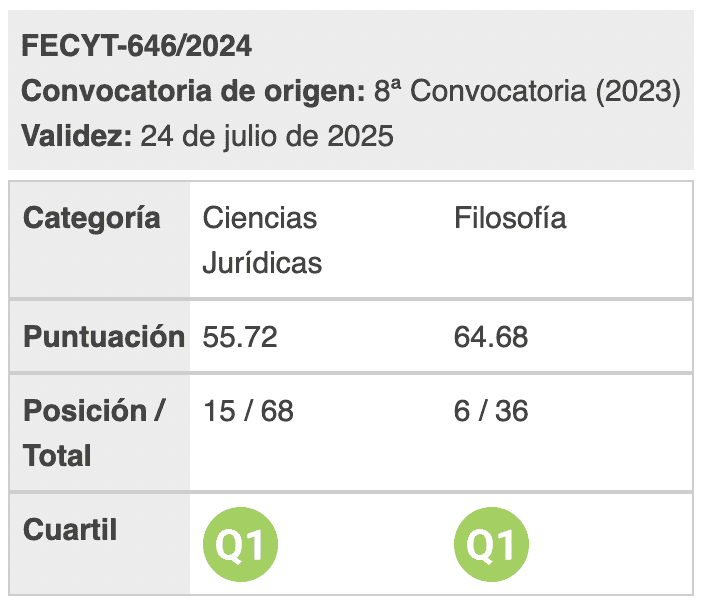
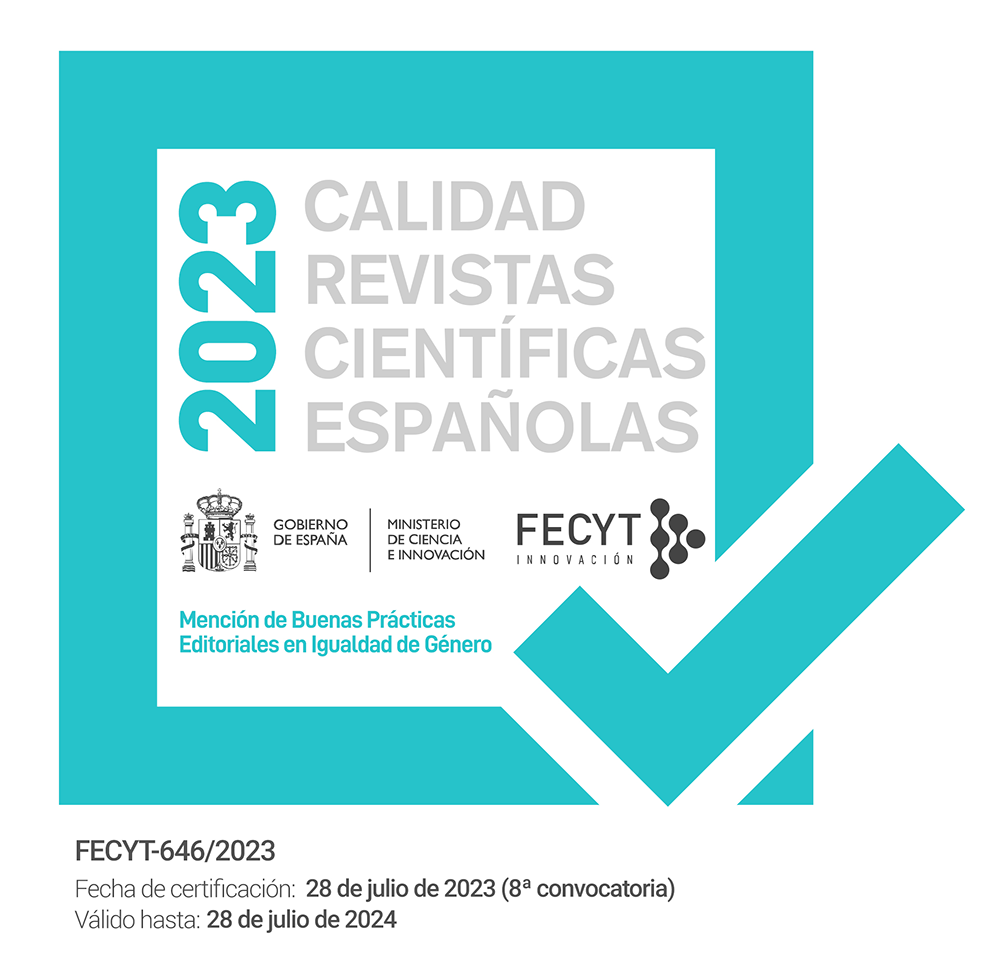
-
Deadline for submission: 20 December 2024 (13:00 h CET)
